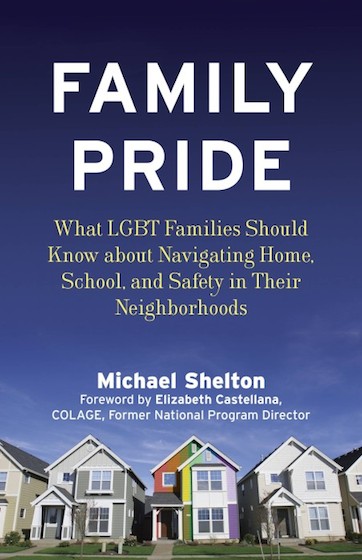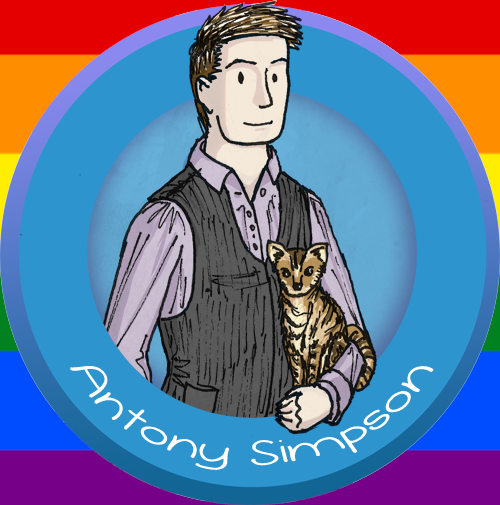 |
Family Pride by Michael Shelton is written like a research article and has an extensive list reference list. Shelton highlights early on that there is a lack of representation of ethic minorities and economically disadvantaged LGBT families in the research. The book is clearly structured and styled as an educational textbook. No definition of an LGBT family is made or attempted; probably because LGBT families are so diverse in their make up and scope. Just like ‘straight’ families.
Shelton interviewed some LGBT parents and even some of their children from across America for this book. I would have enjoyed reading more of these interviews; particularly around their coping strategies for dealing with homophobia, perceived hertrosexism and subtle prejudices. I would have enjoyed reading about these LGBT families hopes for the future. |
Family Pride starts with an introduction, explaining the history of gay rights movement and the extreme rightwing (anti-gay) response to this agenda. How the progress of gay rights movement has had an unintended backlash on LGBT families and put many of them in the spotlight in their communities.
I should point out, at this point, that this book is completely Americanised and lacks any international perspective. However many of the issues faced by LGBT families in America will apply to LGBT families in the UK.
Then Family Pride gives a comprehensive review of the issues LGBT families face including:
- Internalised homophobia.
- Stages of coming out as an LGBT to children, families and the community.
- The facade of the perfect family.
- Issues in schools such as the other same-sex parent not being recognised and bullying of the children by other children (and potentially some of the school staff).
- Access and engagement with physical and mental health services.
- The ability to access and enjoy leisure activities (including the all American Summer Camps).
- Religious Institutions.
- and the Police & Legal System.
In the conclusion there’s a small section dedicated to how to improve attitudes and acceptance of LGBT families, which will enable better community integration and to give LGBT families a sense of belonging.
Overall Family Pride has good, evidenced-based content. The writing style could have been more engaging and I felt that Shelton over-explained his point at times. This book is ideal for Students or Practitioners in the disciplines of Social Work, Nursing, Mental Health, Youth Work, Housing, the Police, Prison Officers and other public service institutions. It will give Students and Practitioners an awareness of the issues LGBT families face with accessing and engaging with institutions in a way that is dignified, respected and valued.
Family Pride by Michael Shelton is available to buy on Amazon.
I recently interviewed two LGBT parents for The Gay UK; so you might like to read FEATURE: Coming Out to The Kids – Paul’s Story and FEATURE: Coming Out to The Kids – Linda’s Story.
Review soon,
Antony


